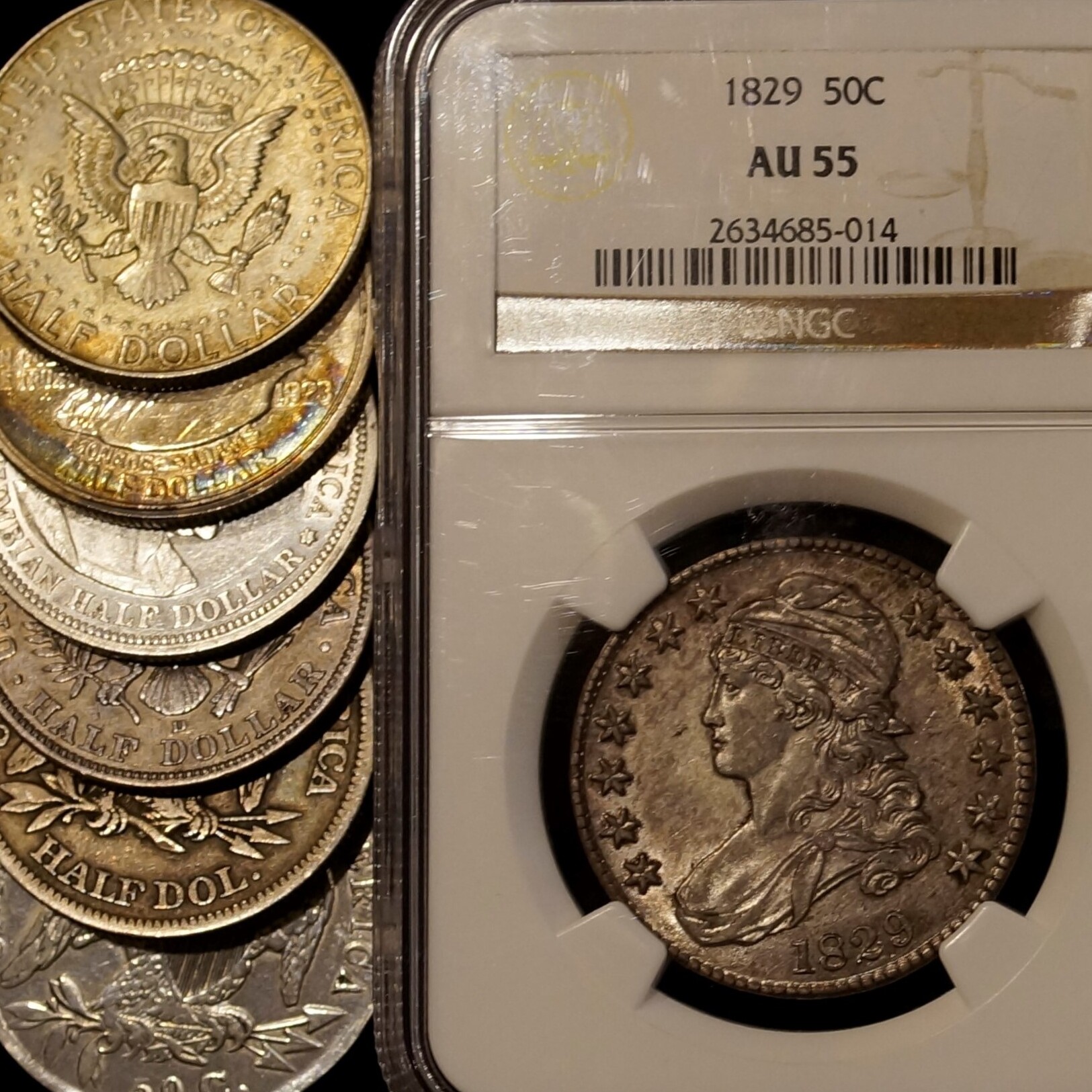Buying and selling certified coins is one of the safest ways to collect and deal with coins. The condition of a coin determines its value, so ensuring a condition through certification ensures a safe price point when buying and selling. Buying and selling raw coins, on the other hand, gives you a chance to buy great looking coins for a cheaper cost. First of all, there is a cost to getting a coin certified and placed in a holder. A raw coin has not taken on any expenses beyond its cost, like certification, keeping the price lower. Second, one man’s opinion on a grade of a coin may differ from another man’s opinion making opportunities for great deals to transpire between individuals. We recommend collecting certified coins and raw (ungraded) coins, both have their advantages.
Certified coins tend to have an ease about them when buying and selling. To pay or receive the premium money that a particular certified coin might demand, one might consider a few things: 1) Did the coin get certified from one of the highly respected and trusted coin grading services (NGC, PCGS, ANACS)? and 2) Is the coin great looking? I want to know if the coin is absent of toning, if it has rim toning, if it is damaged anywhere, or anything else that might alter the color or appearance of the coin. The more “original” or “white” or consistantly even looking a coin is the more desirable to collectors they become. The advantages of having certified coins are that there are no guessing games about condition (which dictates value), the coins are forever protected by the encapsulation, and storage with long-term ownership is simple and clean. When buying certified coins, try to buy the nicest coins you can find and try to be choosy about what you want.
Raw coins are more difficult do buy and sell than certified coins for a few reasons, but have the opportunity for such great transactions and relationships between individuals to transpire. First, be aware of the raw coin you are dealing with. Is it real? Coins have been counterfieted for years in an attemt to decieve the knowledgaeble, so be sure to ask yourself, “Is this one I am dealing with real?” Second, is it damaged or cleaned or has anything else unnatural happened to the coin? This would definitely drive the value of a coin down. Finally, how does the coin look to you. Is it good looking? Does it have any coloration or blemishes worth noting? The advantages to buying and selling raw coins are that one can get a great looking coin for cheaper than certified rates, one might find rare dates at a less expensive option, and just having the ability to have and to hold your loose coin is a nice thing to do. Have you ever held a 1 troy ounce piece of gold in your hand? It is deceptively heavy! Remember, try and always buy the nicest coins available or be ready to negotiate a lower price due to a coin having any complications. The nicer a coin is can definitely boost a coins value, but the more wary a coin is can definitely be a detrement to its value.


